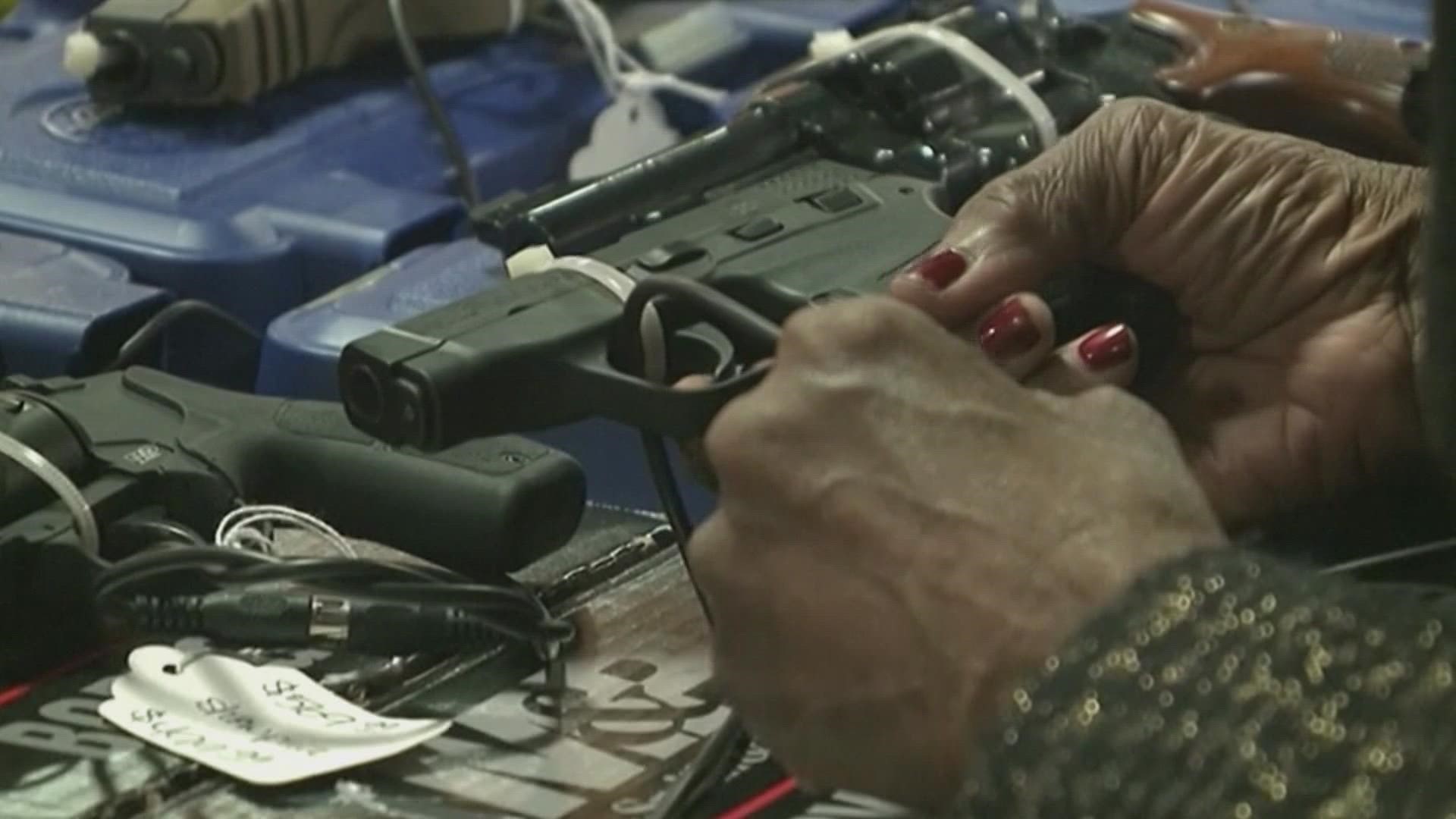Gun ownership, entangled with Second Amendment rights and public safety, is a complex thread in American life. This report examines the ten states with the strictest gun laws in 2023. We compare “May Carry” and “Shall Carry” policies, age limitations, permission requirements, and the top 10 states with the harshest gun laws.

Photo from: King 5 News
May Carry vs. Shall Carry
The distinction between “May Carry” and “Shall Carry” rules is crucial to state gun legislation. “May Carry” states have broad discretion in issuing gun permits, even if all standards are completed. In contrast, “Shall Carry” states must grant permits to applicants who complete all legal requirements, including mandated training and background checks.
Age restrictions significantly influence gun legislation. Most states set the minimum age at 18, but the harshest established it at 21. This higher age limit applies to firearm possession, permit applications, and transfers, emphasizing responsible gun ownership.
These add another degree of control to firearms legislation. Gun permits are typically denied to sex offenders, domestic violence offenders, convicts, and dishonorably discharged military personnel in states with severe gun laws. Public safety and firearm theft prevention are the goals of this screening process.
READ ALSO: Chicago Neighborhoods: Dangerous Locations Of The City Of Contrasts
Top 10 States with Tightest Gun Laws and Policies
- California: The state of California has banned high-capacity magazines and assault firearms. All firearm transactions undergo thorough background checks.
- New Jersey: New Jersey requires state-issued permits for handgun ownership. Permits from other states are not accepted.
- Connecticut: New legislation passed in Connecticut after the Sandy Hook tragedy. May Carry policy with discretionary permits.
- New York: In New York, assault weapons are banned and magazine capacity is limited. A universal background check would close the “gun show loophole.”
- Hawaii: Hawaii requires a valid cause for ownership and has strict permit-granting standards. Twenty-one is the gun ownership age.
- Maryland: Bump stock ban and obligatory weapons instruction. Handgun buyers need licenses and fingerprints.
- Massachusetts: Massachusetts allows carry policies with discretionary permit issuance. Firearm storage rules to prevent accidents and unlawful access.
- Illinois: Illinois prohibits open carry and only allows concealed carry. FOID card system for gun ownership and purchase.
- Rhode Island: Permit issuing in Rhode Island is at the discretion of authorities. Safety quiz for new firearm buyers.
- Washington DC: Washington DC requires concealed and open carry licenses. “Red flag” law permitting temporary firearm removal for public safety.
Gun laws must balance individual rights and public safety. States must balance the right to bear arms with citizen protection. Gun laws are often shaped by democratic public opinion. Gun control is a divisive issue with ardent advocates and opponents. Advocates say stronger gun regulations prevent gun violence, while opponents say they violate constitutional rights. Empirical research informs policy, assessing measures’ efficacy and overcoming technological problems.
In the future, advancements like smart firearms and digital background checks could improve gun safety and enforcement. Integrating these tools and doing research will certainly help gun regulations adjust to social and technological changes.
READ ALSO: Secure Living: Discover Ohio’s Top 10 Safest Cities























